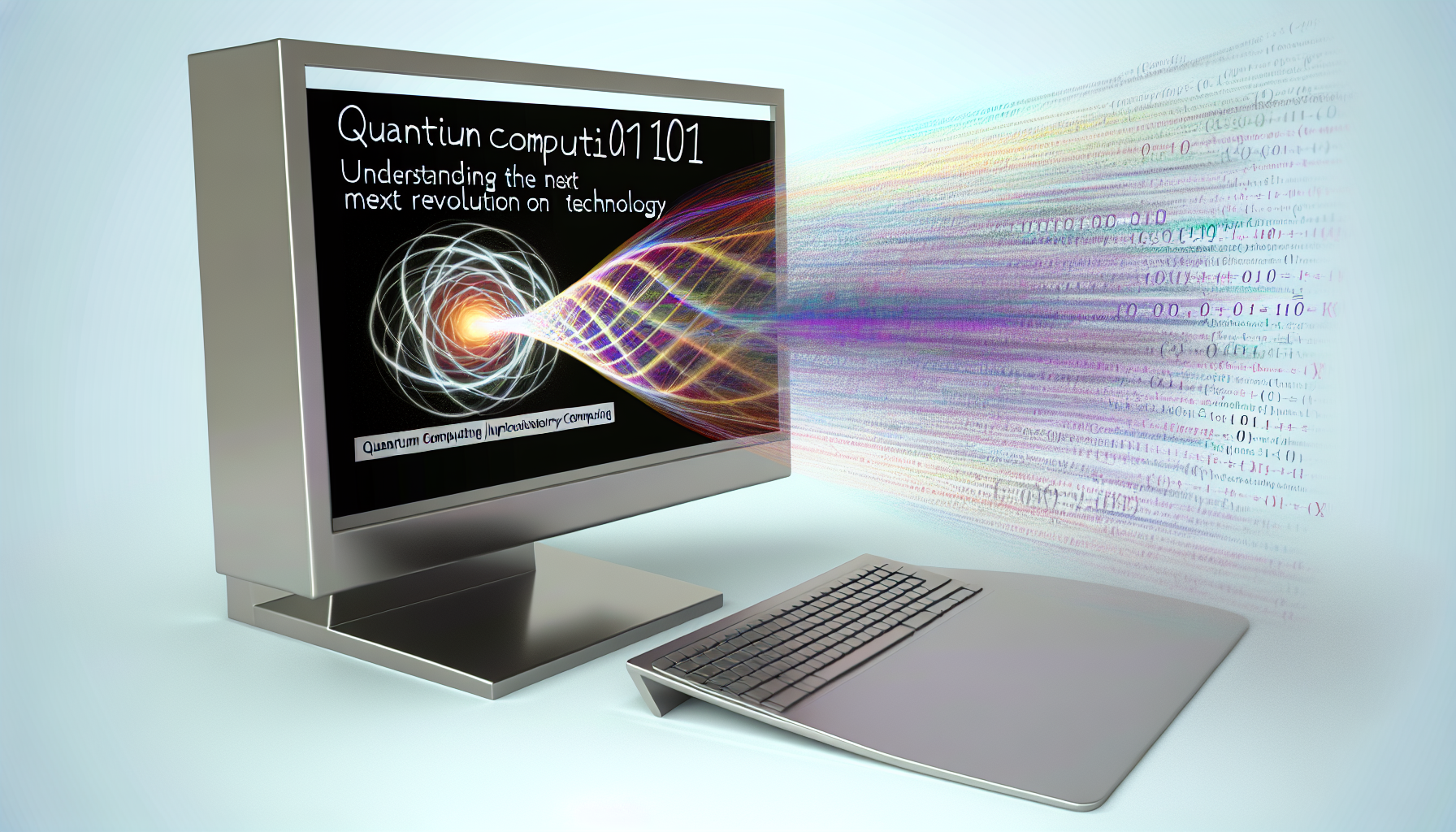In recent years, the term "quantum computing" has gained considerable traction. Often hailed as the next big thing in technology, quantum computing promises to revolutionize various fields, from cryptography to drug discovery. But what exactly is quantum computing? How does it differ from classical computing, and why should we care? This article aims to demystify quantum computing and provide insight into its potential impact on the world.
The Basics of Quantum Computing
At its core, classical computing relies on bits as the smallest unit of data. A bit can exist in one of two states: 0 or 1. Classical algorithms perform calculations using a sequence of these bits. Quantum computing, however, operates on qubits. Unlike classical bits, qubits can exist in multiple states at the same time, thanks to a principle known as superposition. This allows quantum computers to perform complex calculations at a far greater speed than their classical counterparts.
Superposition and Entanglement
Two key principles govern the behavior of qubits: superposition and entanglement.
-
Superposition: A classical bit is either 0 or 1, while a qubit can be both 0 and 1 simultaneously. This allows quantum computers to explore multiple solutions to a problem at once, dramatically increasing processing power.
- Entanglement: This phenomenon occurs when two qubits become interconnected in such a way that the state of one immediately influences the other, regardless of distance. Entangled qubits can be utilized to perform coordinated operations, leading to faster problem-solving capabilities.
These principles enable quantum computers to handle tasks that would be infeasible for classical computers, such as factoring large numbers or simulating quantum systems.
The Quantum Computing Landscape
The quantum computing field is still in its infancy, but significant progress has been made by both established tech giants and startups. Companies like IBM, Google, Microsoft, and startups like Rigetti Computing are heavily investing in quantum research. They are developing quantum processors, algorithms, and software that will pave the way for practical applications.
Quantum Hardware
There are several approaches to building quantum computers, including:
-
Superconducting Qubits: This technique uses superconducting circuits to create qubits. Google’s Sycamore processor operates on this principle.
-
Trapped Ions: Here, ions are trapped and manipulated using lasers, a method that has been employed by companies like IonQ.
- Photonic Quantum Computers: These use light particles (photons) to represent qubits, offering the advantage of speed and reduced error rates.
Quantum Algorithms
Alongside hardware advancements, quantum algorithms are crucial for harnessing quantum computing’s power. Notable examples include:
-
Shor’s Algorithm: Intended for factoring large numbers exponentially faster than the best-known classical algorithms, Shor’s algorithm poses a significant threat to current encryption standards.
- Grover’s Algorithm: This algorithm can search unsorted databases quadratically faster than classical algorithms, making it a game-changer in data retrieval.
Applications of Quantum Computing
The potential applications of quantum computing are profound and diverse. Some key areas include:
1. Cryptography
One of the most immediate applications of quantum computing is in cryptography. Classical encryption methods, such as RSA, could be easily broken with Shor’s algorithm. This has led researchers to explore quantum-resistant encryption methods to secure sensitive data against future quantum attacks.
2. Drug Discovery
Quantum computing could revolutionize the pharmaceutical industry. Simulating molecular interactions at the quantum level can help researchers identify promising drug candidates far more quickly and with greater accuracy than classical simulations.
3. Optimization Problems
Many industries, from logistics to finance, grapple with complex optimization problems. Quantum algorithms can offer solutions more efficiently, enabling companies to save time and resources.
4. Machine Learning
Quantum computing can enhance machine learning algorithms by providing faster data processing and superior accuracy in pattern recognition. These applications have the potential to transform industries like healthcare, finance, and marketing.
The Challenges Ahead
While quantum computing holds tremendous promise, several challenges impede its progress:
-
Error Rates: Qubits are highly susceptible to environmental factors, leading to errors. Improving error correction methods is crucial for practical applications.
-
Scalability: Building scalable quantum computers with a sufficient number of qubits remains a significant engineering challenge.
-
Integration with Classical Systems: For the foreseeable future, quantum computers will likely complement classical systems rather than entirely replace them. Finding ways to effectively integrate these two paradigms is essential.
- Training a Workforce: The field of quantum computing requires specialized knowledge. Educating the next generation of scientists and engineers is vital to driving innovation.
Conclusion
Quantum computing is poised to revolutionize technology as we know it. With its unique principles of superposition and entanglement, quantum computing offers the potential to solve problems that are currently beyond the reach of classical computers. While challenges remain, the ongoing research and investment in this field signal a bright future. Understanding quantum computing isn’t just for scientists and engineers; it’s essential for everyone to appreciate its potential impact on society.
FAQs
1. What is quantum computing?
Quantum computing is a type of computing that uses quantum bits (qubits) to perform calculations. Qubits can exist in multiple states simultaneously, allowing quantum computers to process information much more efficiently than classical computers.
2. How does quantum computing differ from classical computing?
While classical computing uses bits that can be either 0 or 1, quantum computing uses qubits that can be both at the same time, thanks to superposition. Additionally, qubits can be entangled, allowing them to influence each other instantaneously.
3. What are some practical applications of quantum computing?
Quantum computing has numerous potential applications, including cryptography, drug discovery, optimization problems, and enhancing machine learning.
4. What are the main challenges facing quantum computing?
Key challenges include high error rates, scalability issues, the need for integration with classical systems, and the necessity of training a qualified workforce.
5. When will quantum computers be widely available?
While significant progress has been made, practical and widespread applications of quantum computing are still years away. Ongoing research and development are expected to bring us closer to realizing the full potential of this revolutionary technology.


